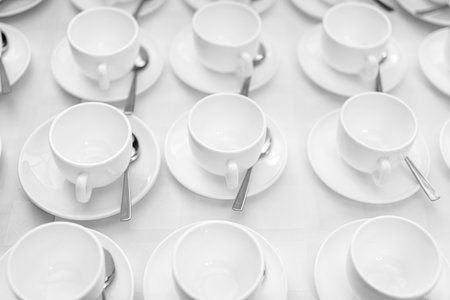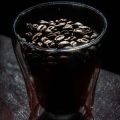Introduction to Coffee Cocktails in British Society
The story of coffee cocktails in British culture is a fascinating blend of tradition, innovation, and evolving taste. While the British have long been celebrated for their love of tea, the arrival and eventual embrace of coffee brought about intriguing new opportunities for experimentation within the local drinks scene. Coffee cocktails first made their appearance in the United Kingdom during the mid-20th century, at a time when both coffee and cocktail culture were undergoing significant transformations. Initially met with curiosity and a hint of scepticism by British drinkers accustomed to classic spirits and traditional pub fare, these innovative concoctions quickly began to find favour among those seeking something fresh yet comforting. Their unique marriage of rich, roasted coffee notes with the warming embrace of spirits offered a novel alternative to standard after-dinner drinks. The early reception was marked by intrigue; bartenders across London’s burgeoning cocktail bars started crafting signature recipes that showcased both British restraint and cosmopolitan flair. As tastes shifted and palates grew more adventurous, coffee cocktails steadily carved out their niche, laying the groundwork for a dynamic evolution that would see them become staples in stylish bars and homes throughout the UK.
Victorian Elegance: Coffee’s Early Associations with British Spirits
The Victorian era, a time defined by ornate decorum and a taste for refined indulgence, witnessed the emergence of coffee as more than just a morning pick-me-up. The British elite, known for their love of sophisticated social gatherings, began to experiment with blending coffee’s robust character with the nation’s established drinking rituals. This innovative spirit set the stage for coffee cocktails to become an integral part of British culture.
During lavish soirées and intimate parlour meetings, the Victorians delighted in after-dinner drinks that combined the comforting warmth of coffee with the nuanced flavours of local spirits. The period saw a gradual shift from tea-centric gatherings to events where coffee played a starring role, often accompanied by sherry, brandy, or port—quintessentially British tipples. The art of mixing these beverages became both a social performance and a mark of good taste.
Beverage |
Main Ingredients |
Occasion |
|---|---|---|
| Café Brulot | Coffee, Brandy, Spices | After-dinner gatherings |
| Coffee Punch | Coffee, Port or Sherry, Sugar | Celebratory banquets |
| Coffee Flip | Coffee, Egg, Brandy or Rum | Late-night salons |
This fusion was not just about flavour but also about spectacle. Silver coffee pots and ornate glassware were paraded before guests; spirits were sometimes flambéed tableside for added drama—a nod to both showmanship and sophistication. As coffee cocktails grew in popularity among the upper classes, they began to reflect Victorian values: hospitality, elegance, and a fondness for experimentation within the bounds of propriety.
![]()
3. Post-War Innovation and Iconic Recipes
As Britain emerged from the shadow of World War II, the nation’s culinary and drinking culture underwent a marked transformation. The austerity of wartime rationing gradually gave way to a new era defined by creativity, curiosity, and a taste for the cosmopolitan. British bartenders, inspired by international trends and buoyed by increased travel and global influences, began to experiment with bolder flavours and ingredients—including coffee.
The introduction of espresso machines in London cafés during the 1950s and 60s was nothing short of revolutionary. This Italian import quickly became a symbol of sophistication and continental flair, making its way from Soho’s bohemian coffee bars into the broader British consciousness. It didn’t take long before enterprising mixologists recognised the potential for combining this potent brew with spirits, paving the way for an entirely new category of cocktails.
Perhaps the most iconic result of this post-war innovation is the Espresso Martini. Created in the 1980s by legendary bartender Dick Bradsell at Fred’s Club in London, it epitomised both the energy and elegance of the era. According to lore, a supermodel requested a drink that would “wake me up and then f*** me up”—and thus, the now-ubiquitous mix of vodka, fresh espresso, coffee liqueur, and sugar syrup was born. Its smooth yet robust profile instantly captured the imagination of British cocktail enthusiasts and became a staple on menus nationwide.
This period also saw other inventive combinations emerge—Irish Coffee took on an Anglicised twist, while homegrown liqueurs found their way into new caffeinated concoctions. The post-war years not only marked a turning point for coffee cocktails in Britain but also set the stage for a new era of experimentation and appreciation that continues to influence British drinking culture today.
4. The Rise of Coffee Culture in Modern Britain
The turn of the 21st century marked a dramatic transformation in Britains relationship with coffee, spurred on by the third wave coffee movement. Suddenly, British cities—from London’s bustling Shoreditch to Manchester’s Northern Quarter—found themselves at the epicentre of a new appreciation for single-origin beans, precise brewing methods, and a spirit of artisanal craftsmanship. This newfound reverence for quality coffee merged seamlessly with the UK’s burgeoning cocktail scene, setting the stage for an innovative revival of coffee cocktails.
As independent coffee shops flourished across the country, they fostered a culture where baristas and bartenders alike began experimenting with flavour profiles and brewing techniques. Coffee was no longer just a morning ritual; it became a canvas for creativity, inspiring collaborations between local roasteries and micro-distilleries. These partnerships led to a dazzling array of signature drinks that reflect both local tastes and global trends.
The Artisan Spirit Meets Third Wave Coffee
This synergy between artisan spirits and specialty coffee has seen classic recipes reinvented and entirely new concoctions emerge. Rather than relying solely on mass-produced liqueurs or generic espresso, bartenders now source beans roasted within city limits or even infuse their own spirits with locally roasted grounds. The result is a vibrant spectrum of coffee cocktails that showcase both regional ingredients and international influences.
| Coffee Cocktail | Key Ingredients | Signature Twist | Popular City |
|---|---|---|---|
| Espresso Martini Reimagined | Single-origin espresso, craft vodka, artisan coffee liqueur | Locally roasted beans & homemade syrups | London |
| Caffè Negroni | Cold brew concentrate, gin, vermouth, Campari | Bristol-batch cold brew & botanical gins | Bristol |
| Highland Affogato Old Fashioned | Scotch whisky, demarara syrup, espresso shot | Scottish single malt infusion | Edinburgh |
| Irish Stout Espresso Flip | Stout beer, Irish whiskey, espresso, egg yolk | Coffee-infused stout from local microbrewery | Belfast |
The Urban Revival: From Pop-Up Bars to Rooftop Terraces
This renaissance isn’t confined to high-end cocktail lounges; pop-up bars, rooftop terraces, and street festivals across the UK now feature inventive coffee cocktails as headline acts. The trend has given rise to friendly competitions among bartenders to craft the most original blend—a testament to Britain’s evolving palate and its embrace of coffee as both an everyday comfort and an evening indulgence.
A New British Ritual Emerges
No longer relegated to after-dinner menus or seasonal specials, coffee cocktails have become integral to modern British social life. Whether sipped on a sunlit patio in Brighton or enjoyed in a moody Leeds speakeasy, these drinks represent the intersection of tradition and innovation—a fitting reflection of contemporary British taste.
5. Signature British Coffee Cocktails and Their Stories
Embarking on a journey through Britain’s coffee cocktail scene reveals not only a celebration of taste but also a tapestry of local history and creativity. Each region brings its own flair to the table, transforming classic recipes into something distinctly British.
The London Fog Espresso Martini
Born in the city’s trendy East End, this twist on the classic Espresso Martini swaps out vodka for gin, blending London’s favourite spirit with rich espresso and Earl Grey syrup. This aromatic concoction captures the city’s penchant for both tea and cocktails, making it a staple at stylish rooftop bars and late-night haunts alike.
The Highland Coffee Dram
In Scotland, whisky is king. The Highland Coffee Dram marries robust single malt Scotch with strong black coffee and a hint of heather honey. Served in tartan-clad pubs or chic Edinburgh lounges, this heart-warming cocktail tells a story of wild landscapes and age-old distilling traditions—each sip a nod to Scottish hospitality.
The Seaside Affogato
Down in Cornwall, coastal cafés have reimagined the Italian affogato using Cornish clotted cream ice cream drowned in locally roasted espresso and finished with a splash of Cornish rum. It’s the taste of summer holidays by the sea—creamy, boozy, and with just enough caffeine to fuel an afternoon exploring windswept beaches.
The Irish-British Crossroads: Belfast Brew
Though Irish Coffee has its roots across the water, the Belfast Brew brings it home with English breakfast tea-infused coffee, Irish whiskey, and thick British double cream. Served in cozy pubs from Liverpool to Newcastle, it’s a symbol of shared histories and borderless flavours.
The Stately Garden Mocha
Inspired by England’s grand country estates, this cocktail stirs together cold brew coffee, sloe gin, dark chocolate liqueur, and muddled blackberries. Garnished with fresh mint from walled gardens, it’s as much an aesthetic experience as a delicious drink—perfect for sipping in sun-dappled courtyards or during afternoon garden parties.
From Local Tales to Modern Tables
Each signature British coffee cocktail carries more than just flavour; it brims with local character and storytelling. From London’s innovative spirit to Cornwall’s coastal charm, these drinks are snapshots of British life—inviting you to taste history, heritage, and a dash of modern creativity in every glass.
6. Coffee Cocktails in Contemporary British Nightlife
Step into any British city at dusk and you’ll notice the unmistakable hum of nightlife, where the allure of coffee cocktails has woven its way into the very fabric of social culture. From the heart-warming glow of local pubs to the sleek sophistication of avant-garde cocktail lounges, coffee cocktails have become a staple for those seeking both comfort and innovation in their evening tipples.
A Toast to Tradition and Trendsetting
While the classic Irish Coffee remains beloved in countryside inns and urban gastropubs, modern bartenders across Britain are pushing boundaries with inventive concoctions. Espresso Martinis—now as synonymous with Friday nights as a crisp pint—are expertly shaken behind bars from London’s Shoreditch to Manchester’s Northern Quarter. These drinks have evolved from niche curiosities to headline acts on cocktail menus, reflecting the British penchant for both heritage and reinvention.
The Pub Meets the Coffeehouse
Cosy pubs, once known solely for ales and ciders, now boast small-batch cold brew liqueurs and house-infused coffee spirits. It’s not uncommon to find a “flat white martini” or “mocha old fashioned” chalked up on specials boards, offering patrons a playful twist that bridges café culture with pub tradition. The communal spirit of the British local finds new energy as friends gather over rounds of coffee-based creations, perfect for long conversations and laughter-laden evenings.
Cocktail Lounges: Where Artistry Reigns
Meanwhile, high-end cocktail bars have elevated coffee cocktails into an art form. Baristas and mixologists collaborate closely, sourcing single-origin beans and experimenting with brewing methods to craft drinks that are as photogenic as they are flavourful. Think nitro-charged espresso served over smoked whiskey, or spiced cold brew paired with botanical gins—each sip designed to surprise and delight adventurous palates. These venues embody Britain’s flair for style, offering an experience that is both indulgent and distinctly contemporary.
The Social Ritual
Coffee cocktails have become more than just drinks; they’re social rituals woven into after-work wind-downs, weekend celebrations, and late-night rendezvous. In an age where experiences matter just as much as taste, these caffeinated libations perfectly capture the dynamic spirit of modern British nightlife—a blend of comfort, creativity, and conviviality.
7. Looking Ahead: The Future of Coffee Cocktails in the UK
As we cast our gaze forward, the world of coffee cocktails in Britain seems poised for an exciting evolution. With a renewed emphasis on artisanal craftsmanship and locally sourced ingredients, bartenders across the UK are increasingly experimenting with single-origin coffees, house-made infusions, and even cold brew concoctions that blur the lines between barista and mixologist. The trend towards sustainability is also shaping menus, inspiring venues to champion ethical coffee sourcing and eco-conscious garnishes.
Moreover, British palates are becoming ever more adventurous, seeking out global influences—from Scandi-inspired aquavit espresso tipples to Italian amari-laced creations—while never straying too far from beloved classics like the Espresso Martini. The rise of no- and low-alcohol alternatives is another force to be reckoned with, giving rise to sophisticated coffee-based mocktails that cater to mindful drinkers without compromising on flavour or ritual.
Looking ahead, technological innovations such as nitro coffee taps and precision extraction methods promise to further elevate both texture and taste, bringing a new level of finesse to British cocktail bars. Coffee cocktails are also finding their way into unexpected settings: think pop-up brunches in East London or intimate supper clubs in Edinburgh, where the interplay between food, coffee, and spirits takes centre stage.
Ultimately, the future of coffee cocktails in the UK looks set to honour its rich heritage while embracing change—a stylish blend of tradition and innovation that continues to shape Britain’s vibrant drinks scene.


